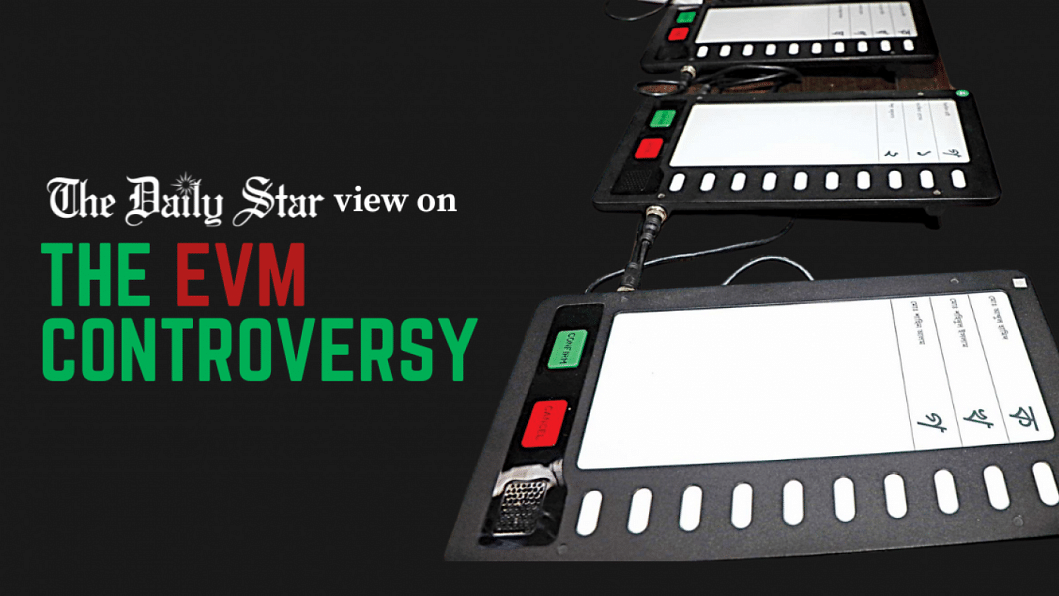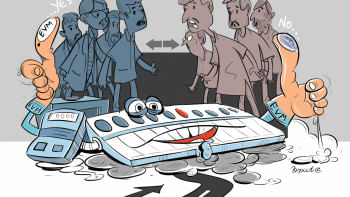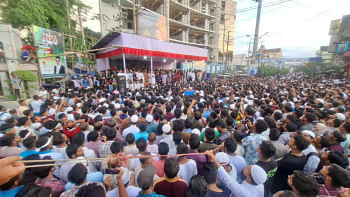Why this relentless push for EVMs?

In recent days, the Election Commission (EC) has been mired in controversy after it was alleged that they doctored parties' stance on electronic voting machines (EVMs) in the roadmap published by the EC for the upcoming parliamentary elections, following talks with 29 out of the 39 registered political parties. According to a report in this daily, the commission said 17 parties had supported the use of EVMs; however, The Daily Star's investigation revealed that at least four of those parties spoke against using EVMs, while others placed certain conditions for EVM use, such as implementing the Voter-Verified Paper Audit Trail (VVPAT) technology – conditions which were finally ignored in the roadmap.
Yet, without addressing or even acknowledging these very serious allegations, the commission has instead gone full steam ahead with their plans and finalised a massive Tk 8,711 crore project for EVM procurement and management. The project proposal has fixed the base price of an EVM at USD 2,487, which means at least half a billion dollars will be needed to procure the target of two lakh EVMs. This was the same price at which EVMs were bought in 2018, only back then it cost Tk 86 per US dollar, whereas due to the devaluation of the taka, it will now cost Tk 110 per USD.
What is crucial to note here is that back in 2018, it was reported in the media that Bangladesh bought EVMs at 11 times more the price than India did. This time around, the EC has again opted for these inflated prices, despite depleting currency reserves and the devaluation of the taka, despite the government's own recommendations of cutting down unnecessary costs of public projects, and – most concerning of all – despite the widespread, and to this date mostly unaddressed, lack of confidence in the use of EVMs in elections.
Again and again, the question of why the EC is so hell-bent on the use of EVMs has been raised, and every time the response has been vague, contradictory, or simply silence. The fact that the EC has not only ignored legitimate concerns, but is now facing allegations of spreading disinformation in their bid to push for EVMs, is something that should worry us all. What is the reason behind this urgency? In whose interests is the EC working, if it cannot perform its responsibility of creating a level playing field, where all political parties will have the confidence to participate in elections? And if the EC cannot be trusted to be open and transparent about the process of organising elections, then how can the people of this country trust the entire democratic process as a whole?


 For all latest news, follow The Daily Star's Google News channel.
For all latest news, follow The Daily Star's Google News channel. 




Comments